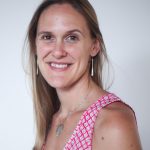Transitioning to the Workplace: soft skills in marginalized communities
“See, this is what I was afraid of,’ Kim grumbled, giving a frustrated look to the new text message on her phone. “Her parents won’t let her come. She’s got to stay home and look after the family store and her younger siblings today.” Juanita, 16 years old and the youngest participant signed up for our workshop, had just dropped out.
Kim Hackbarth, Executive Director of the Costa Rican chapter of Boy with a Ball (BWAB), and I were sitting together in the BWAB headquarters on Calle Blancos, discussing the layout of the room that would best fit our needs for our afternoon workshop, Soft Skills for Employability. The training would set a milestone for BWAB, a social impact organization working ‘to better cities by reaching young people and equipping them to be leaders capable of turning and transforming their communities.’ BWAB works in two of the most at-risk communities in San Jose, using mentoring, tutoring, recreational programming and scholarships to empower young people and offer them opportunities hitherto unheard of for poor Nicaraguan immigrants living in the squatter towns of Costa Rica. The day’s workshop was going to bring them all together for the first time – participants from both communities, from English classes and university scholarship programs, volunteers that help run the program, and middle-aged women fighting to earn their high school degrees.
When Kim contacted the UPEACE Centre for Executive Education asking for help on the training, I wasn’t surprised. We have a close partnership. Kim is a graduate of our social innovation program, having earned her Diploma in Social Innovation this past year, and the Centre supports BWAB programs whenever possible, bringing international learning groups to the communities to hear first-hand about the difference BWAB is making in these young peoples’ lives.
Yet when Kim first approached me with the Soft Skills for Employability concept, I felt a twinge of apprehension. She explained her needs: students in her programs are becoming leaders in their own communities, getting the technical skills they needed through language learning and college scholarships, but they still lacked the fundamental communication skills and confidence needed to excel upon leaving their communities in search of job opportunities. A leader in her program can get perfect grades, but when they have to face a potential employer for the first time in a job interview, are they truly prepared to talk confidently about their strengths, and tell the stories that show how much they shine? And when they get that first job, are they ready to accept criticism from a boss and use it to move forward, or to stand up and express themselves when job instructions aren’t clear? There was a breach in their learning, an important link that would segue the transition from success story in a squatter community, to success story in the marketplace.
But for me, grounded in my work at the UPEACE Centre for Executive Education, the task was a bit daunting. We teach soft skills all the time. We run Positive Leadership workshops for organizational and business leaders, we host seminars for graduate students pursuing international understanding, and even our youngest participants are often privileged, 12 year-olds that have gone through exceptional Montessori schools. While the learning outcomes are largely the same in a BWAB-type setting, the background, worldview and reality of the participants is far different.
Yet tackle it we did. I found a great partner to work with me, a former Director of another social impact NGO in Costa Rica who had worked extensively with high school drop outs aiming for a better life. We developed an innovative and exciting program, weaving together introspective exercises designed for self-exploration, practical pieces aimed at improving communication, and boundary pushing dynamics that forced the participants outside of their comfort zones.
Day 1 of the training, this past Saturday, was a success. We had 24 participants in the room, and we made them laugh and smile, and learn and talk about themselves. In a closing circle of one-word diagnoses of the day, the most common responses were ‘learning,’ ‘self-understanding’ and ‘growth.’ Next week’s follow up is more concentrated on job interviewing and strengths, and is sure to evoke more of the same.
Leaving the workshop, I reflected on just how unnecessary my apprehension about the day had been. Aside from presenting the workshop materials in Spanish instead of English, the group dynamic amongst the BWAB students and the Centre’s more typical audiences was actually pretty similar. At the end of the day, when you present people with compelling materials that allow for self-reflection and personal growth, for the most part, they’ll get excited and engage.
But the underlying realities of the students that attended on Saturday haven’t changed. They need this training, and any other strength and support they can get. For the 24 participants able to be there, there were innumerable others that hadn’t made it; young people that hadn’t heard about BWAB programs, live in different communities, or like Juanita, the 16-year-old that had been motivated enough to ask to join us, lacked the family support and flexibility to prioritize personal development over help at home and work for financial gain.
It goes without saying that kids in these communities are facing great challenges. However, it’s trainings like these that maybe, just maybe, will be the springboard for a smooth transition into the professional world; a world in which family limitations and childhood scars do not limit their ability to excel and lead in the workplace.
 Julia Delafield is Co-Director of the UPEACE Centre for Executive Education.
Julia Delafield is Co-Director of the UPEACE Centre for Executive Education.






Dear Julia Delafield,
I am really impressed by this educational initiative and have high interest in engaging in this project. I am a PhD student at the Humboldt University of Berlin, Germany, and would like to know how I can apply for being an instructor.
I background is with food and natural resources question, especially in Latin America, and more recently with the gender bias of food security and sovereignty in a community bases.
My congratulations to all the directors and leaders of this great organization — especially my wonderful grand niece, Kim Hackbarth, who I am so exceptionally proud of — I wish all of you my heartfelt congratulations. You are making a difference in the world — something which everyone should try to do.